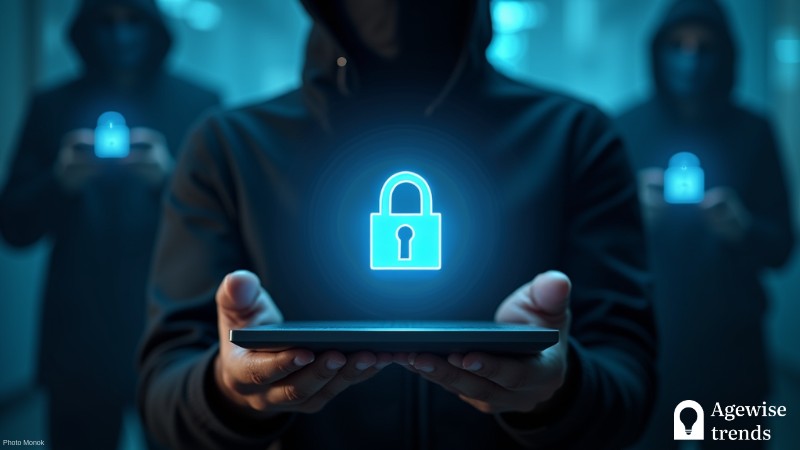As online transactions and digital banking continue to rise, safeguarding your identity has become more critical than ever.
Recent data shows that nearly 1 in 5 Americans have fallen victim to identity theft at some point in their lives.
With cybercriminals continuously developing new methods to steal sensitive information, it’s crucial to stay vigilant and take proactive steps to protect your online security.
Key Takeaways
Protecting your online security is crucial in today’s digital age to prevent identity theft.
- Use strong passwords and two-factor authentication to reduce the risk of unauthorized access.
- Monitor your credit reports regularly to catch suspicious activity early on.
- Be cautious with personal information online, especially on social media platforms.
Stay safe against common scams online
With constant advancements in technology, cyber threats are becoming increasingly sophisticated, making it essential to be aware of the risks and take steps to protect yourself.
Use strong passwords and two-factor authentication
Weak passwords and outdated authentication methods can create significant vulnerabilities, making it easier for hackers to access your accounts.
Using strong, unique passwords and enabling two-factor authentication (2FA) can greatly reduce the risk of unauthorized access.
A cardinal rule that would prevent so much identity theft and fraud is just don’t give out personal or financial information to anyone in response to a request you did not expect
Joannie Wei, assistant director, Federal Trade Commission
2FA adds an extra layer of security by requiring both your login credentials and a separate verification code, which is sent via SMS or obtained through an authenticator app.
Monitor your credit reports regularly
Monitoring your credit reports is essential for spotting suspicious activity before it becomes a bigger problem. Early detection can help prevent serious financial damage or long-term issues with your credit.
To ensure your financial health, make it a habit to review your credit reports from all three major bureaus—Experian, TransUnion, and Equifax—at least once a year. This proactive step allows you to catch any unfamiliar accounts, unauthorized inquiries, or any signs of fraud that could indicate identity theft or mistakes made by creditors.
If you spot any discrepancies or anything that seems out of place, it’s important to reach out to the credit bureau right away.
Be cautious with personal information online
Be cautious about sharing personal information online, particularly on social media platforms.
Limit the amount of sensitive data you make public, and avoid using public Wi-Fi for financial transactions or accessing essential accounts.
Use reliable antivirus software to protect your devices from malware and viruses that could compromise your data.
Consider investing in identity theft protection services that monitor your personal information and alert you to any suspicious activity. These services often include features like credit monitoring, dark web scanning, and fraud detection.
The importance of education and awareness
Educating yourself about common scams and phishing tactics is essential for safeguarding your identity online.
Understanding the types of sensitive information cybercriminals frequently target—such as financial records, social security numbers, passwords, and other private account details—can help you stay one step ahead.
Regularly updating your operating systems, browsers, and software applications ensures you have the latest security patches and features, reducing your vulnerability to known exploits.
By staying well-informed and actively protecting your identity, you can effectively prevent unauthorized access to your data and maintain control over how it’s shared.
Ensuring lasting security for your info
Taking proactive steps to protect your identity today is crucial for maintaining the long-term security and stability of your finances.
Free resources like the Federal Trade Commission’s (FTC) Identity Theft Resources website can equip you with valuable tools, tips, and expert advice to safeguard your personal information.
Digital services, tied to faster and more efficient payment systems, enable criminals to move stolen money out of the system and across country borders at speed
Jason Lane-Sellers, director of Fraud & Identity at LexisNexis Risk Solutions
Remaining vigilant and promptly reporting any suspicious online activity will enhance your identity theft protection efforts.
Safeguarding your identity requires a holistic approach that combines knowledge, awareness, and timely action to minimize cyber threats.
By staying informed and actively following these strategies, you can significantly reduce identity theft risk and maintain control over your personal data. Taking these steps now ensures a more secure and stable financial future.















